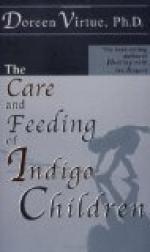How rapidly should the food be increased in quantity?
The increase should not be more than a quarter of an ounce in each feeding; or from one and a half to two ounces in a day.
When should the food be increased?
In the early weeks an increase may be necessary every few days; in the later months sometimes the same formula may be continued for two or three months. It is, however, impossible to give a definite rule as to time. One cannot say with any child that an increase is to be made every week or every two weeks. A much better guide are the conditions present.
The signs indicating that the food should be increased are, that the infant is not satisfied, not gaining in weight, but is digesting well, i.e., not vomiting, and having good stools. One should not increase the food, however, so long as the child seems perfectly satisfied and is gaining from four to six ounces a week, even though both the quantity and the strength of the food are considerably below the average; nor should the food be increased if the child is gaining from eight to ten ounces a week, even if he seems somewhat hungry. The appetite is not always a safe guide to follow.
How can one know whether the strength or the quantity of the food should be increased?
In the early weeks it is well first to increase the strength of the food, the next time to increase the quantity, then the strength again, etc. After the fourth or fifth month, the quantity, chiefly, should be increased.
If a slight disturbance or discomfort occurs after the food has been strengthened, is it best to go back to the weaker formula or to persist with the new one?
Symptoms of minor discomfort are seen for a day or two with many infants after an ordinary increase in food; but in most cases an infant soon becomes accustomed to the stronger food and is able to digest it. If, however, the symptoms of disturbance are marked, one should promptly go back to the weaker formula. The next increase should be a smaller one.
Should one be disturbed if for the first two or three weeks of artificial feeding the gain in weight is very slight or even if there is none?
Not as a rule. If the infant does not lose weight, is perfectly comfortable, sleeps most of the time, and does not suffer from any symptoms of indigestion, such as colic, vomiting, etc., one may be sure that all is going well and that the infant is becoming used to his new food. As the child’s appetite improves and his digestion is stronger, the food may be increased every few days and very soon the gain in weight will come and will then be continuous. If, however, the scales are watched too closely and, because there is only a slight gain in weight or none at all, the food is rapidly increased, an acute disturbance of digestion is pretty certain to follow.
Is not constipation likely to occur if the child is on a very weak food?




